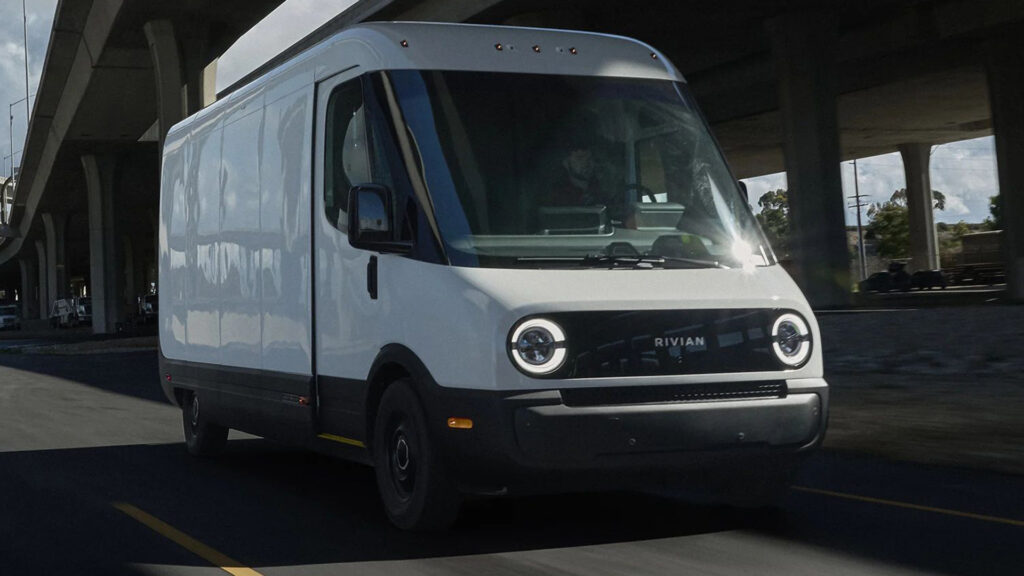Rivian expects to have produced more EVs by the end of this year than previously forecast and confirmed that its Commercial Van will be available to companies other than Amazon.
The electric car manufacturer has been working to end the exclusivity part of its supply deal with Amazon for much of this year. While it will continue to build and supply the van to the e-commerce giant, it is opening up sales to other businesses. Rivian notes the Commercial Van is available in two sizes with a payload of up to 2,734 lbs (1,240 kg) but it is not yet clear when sales and deliveries will begin.
“We’re excited to open sales of our electric commercial van to more businesses,” Rivian chief executive RJ Scaringe said. “Around a quarter of CO2 emitted in the transportation sector in the US comes from commercial vehicles, so it’s imperative we do all we can as soon as possible to help cut emissions.”
Watch: Hollywood Star Crashes Rivian R1T Into Multiple Cars Before Smashing Into Pizza Shop

Speaking on the firm’s third-quarter earnings call, Scaringe said that Rivian will have produced around 54,000 vehicles this year by the end of Q4. This is slightly more than the 52,000 it had initially planned to build and comes despite other firms lowering their forecasts. Lucid, for example, has cut its forecast from 10,000 units to between 8,000 and 8,500, The Wall Street Journal reports.
Scaringe added that his firm remains “bullish” on the demand for both the R1T pickup and the R1S SUV, using strong resale values in the used market as an example.
Rivian has other reasons to be confident. It produced 16,304 vehicles in the third quarter and has decreased the gross loss per vehicle produced from around $33,000 in the second quarter to $30,648. Its cash burn also fell from around $2 billion in Q2 to $1.3 billion in Q3. Rivian’s research and development expenses did swell from $452 million in Q3 last year to $529 million due to an “increase in engineering, design, and development costs.”
Rivian ended the quarter with $9.1 billion in cash, cash equivalents, and short-term investments.




